
V1 V2 V3 Examples English Study Here
English Verbs Tenses | Forms. Write any verb form below and click the Find button to find out the dictionary look up form. Look up English verb forms - over 5000 verbs! Excellent resource for students and teachers.
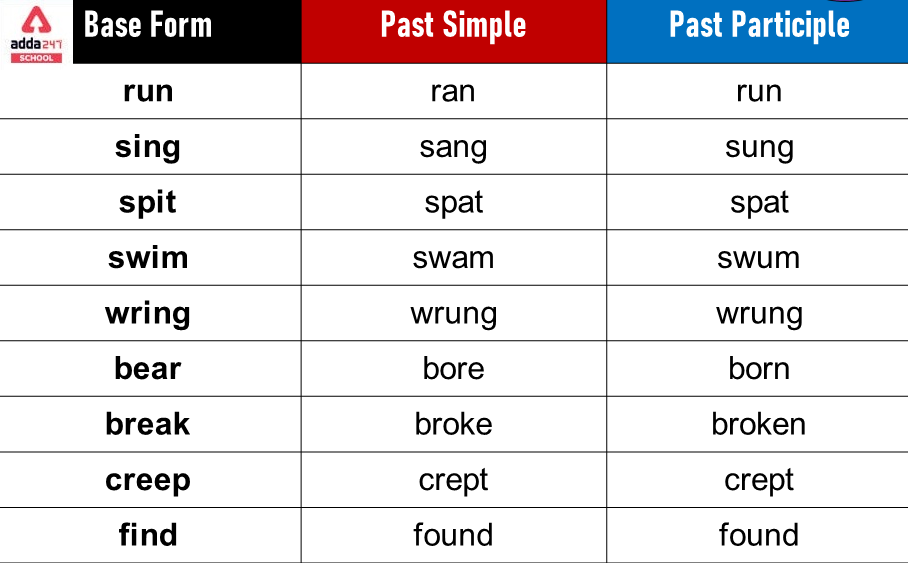
Verb Forms V1, V2, V3, Write All Three (3) Forms of Verb
v1, v2, v3 list in english, verb 1, verb 2 and verb 3 list, basic form (v1), past simpe (v2) and past participle (v3) in english; Base Form - V1 Past Simple - V2 Past Participle - V3 abide abode abode arise arose arisen awake awoke awoken be was/were been bear bore born beat beat beaten beget begot begotten begin began begun bend bent bent bereave bereft bereft beseech besought besought.

Verbs Forms List 300+ List of forms of Verb in Grammar GrammarVocab
Touch Verb 1 2 3, Past and Past Participle Form Tense of Touch V1 V2 V3 touch Meanings; Come into or be in contact with.(transitive verb) Handle in order to manipulate, alter, or otherwise affect, especially in an adverse way.(transitive verb) Have an effect on; make a difference to.(transitive verb) Verb(V1) Past Tense(V2) Past Participle(V3) touch touched touched Verb - es(Ves) Verb.

List of Verbs 2500+ English Verbs for ESL Learners ESL Grammar
Make Verb 1 2 3, Past and Past Participle Form Tense of Make V1 V2 V3 make Meanings; Form (something) by putting parts together or combining substances; construct; create.(transitive verb) Cause (something) to exist or come about; bring about.(transitive verb) Compel (someone) to do something.(transitive verb) Verb(V1) Past Tense(V2) Past Participle(V3) make made made Verb - es(Ves) Verb.

20 Verb Forms, V1 V2 V3 V1 V2 V3 be was, were been beat beat beaten became begin
Di artikel ini, saya memberi Anda 999 kata kerja dalam bahasa Inggris dalam bentuk verb 1, verb 2, dan verb 3. Tidak hanya itu, dilengkapi juga dengan bentuk ing-nya. Semoga saja 999 kata kerja dalam bahasa Inggris di atas menambah kosa kata Anda. Jika Anda ingin tahu kata kerja mana saja yang tidak beraturan (irregular verbs), silakan baca 90.

Cara Penggunaan Verb 1 2 3
At school, students often learn by heart the base, past simple and past participle (sometimes called V1, V2, V3, meaning Verb 1, Verb 2, Verb 3) for irregular verbs. They may spend many hours chanting: sing, sang, sung; go, went, gone; have, had, had; etc. They do not learn these for regular verbs for one very simple reason - the past simple and past participle are always the same: they are.

VERBS 123 Bundle Clipart for Small Commercial and Etsy
This depends upon the particular verbs used and the context. However, there are some tendencies. First, we generally use for + -ing to talk about the use of an object (what the object is capable of) whereas we use to + verb to talk about the intention or purpose of the agent (what the person doing the action is trying/hoping to do). For example: 1.
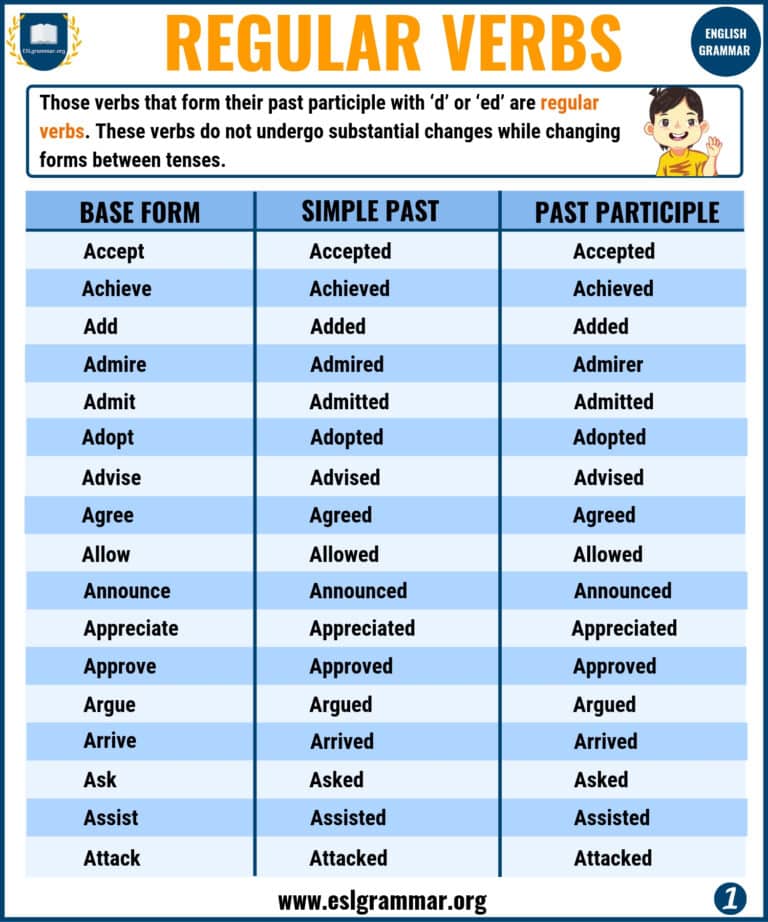
Verbs 3 Types of Verbs with Definition and Useful Examples ESL Grammar
20 common English verbs as an example: V1 (Base Form) V2 (Simple Past) V3 (Past Participle) Be. Was / Were. Been. Have. Had.
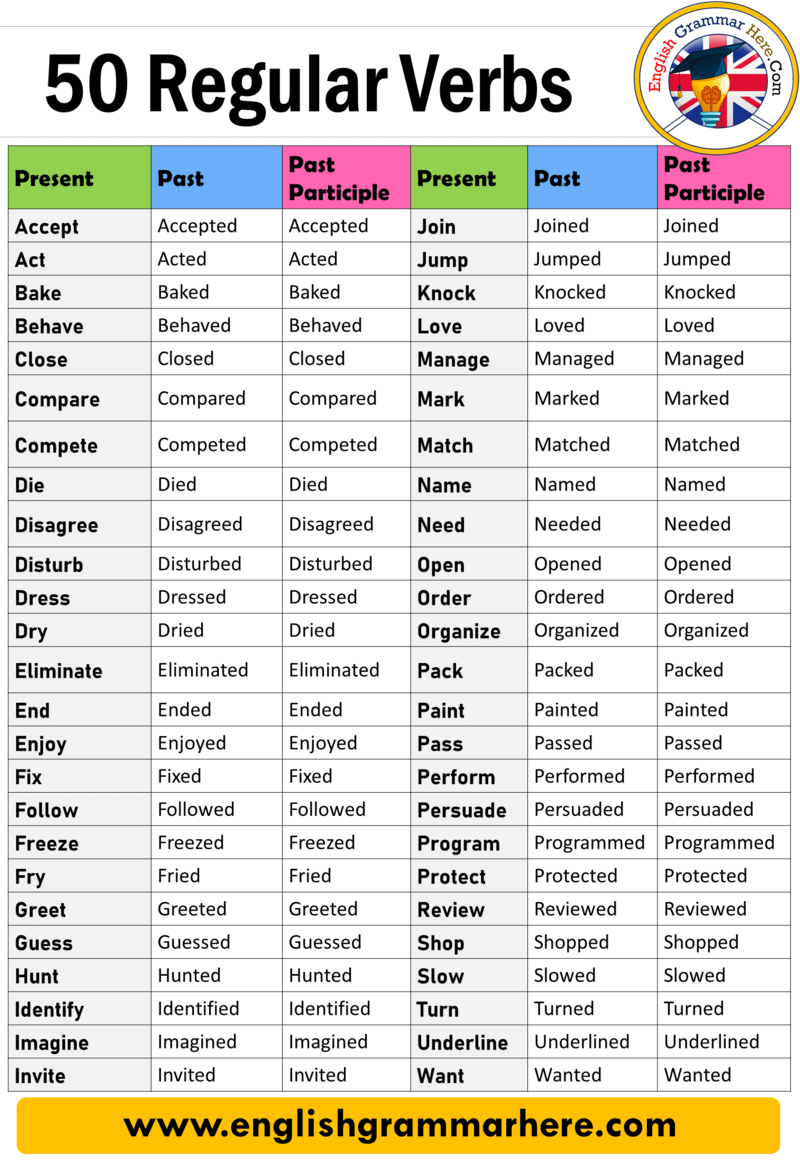
Regular Verbs Examples 50, 50 Regular Verbs List English Grammar Here
Be of Past Simple V2. The verb be is also employed in its V2 form as "was/were"'.It is used to indicate the past tense in sentences. Be of Past Participle V3. This verb's V3 form is 'been'.In the case of past perfect tense or present perfect tense, the word 'been' is used. + In the present perfect tense, the word be is used 'have + been' or 'has +been.'

English Verb Forms Regular and Irregular Verbs ESL Buzz
There Is and There are. Using "there" as a subject with Be verbs need to follow the rules of subject-verb agreement. "There is" is used for singular subjects, and "there are" is used for plural subjects. For example: - There are lots of things to do on the island. NOT There is lots of things to do on the island.

Verb 1 2 3 Pdf Juara Belajar
English verbs, Verb 1 2 3, V1 V2 V3 Verb Form List in English Verb Forms v1 v2 v3 pdf V1, V2, V3 Pdf When learning English you need to know the meaning of certain words first, and then sort the words appropriately according to grammatical rules. Verbs in a regular structure can be transformed with a simple rule, whereas in irregular verbs, this situation is slightly different. It may be a good.

V1 v2 v3 form of verbs Artofit
V1 V2 V3 List in English V1 Base Form V2 Past Simple V3 Past Participle abide abode abode arise arose arisen awake awoke awoken be was/were been bear bore born beat beat beaten beget begot begotten begin began begun bend bent bent bereave bereft bereft beseech besought besought bespeak bespoke bespoken bestride bestrode bestrided bet bet bet bid bade/bid bidden/bid bind bound bound bite bit.

Ejercicio online de Verb to be para A1
April 2, 2023. If you are you looking for a list verb forms V1 V2 V3. Here, you can find a huge collection of verb forms V1 V2 V3 arranged alphabetically from A to Z and we have also provided a PDF download link. English V1 (Base form), V2 (Past Simple), V3 (Past Participle) List; Verb forms v1 v2 v3 v4 v5 pdf download: click here.
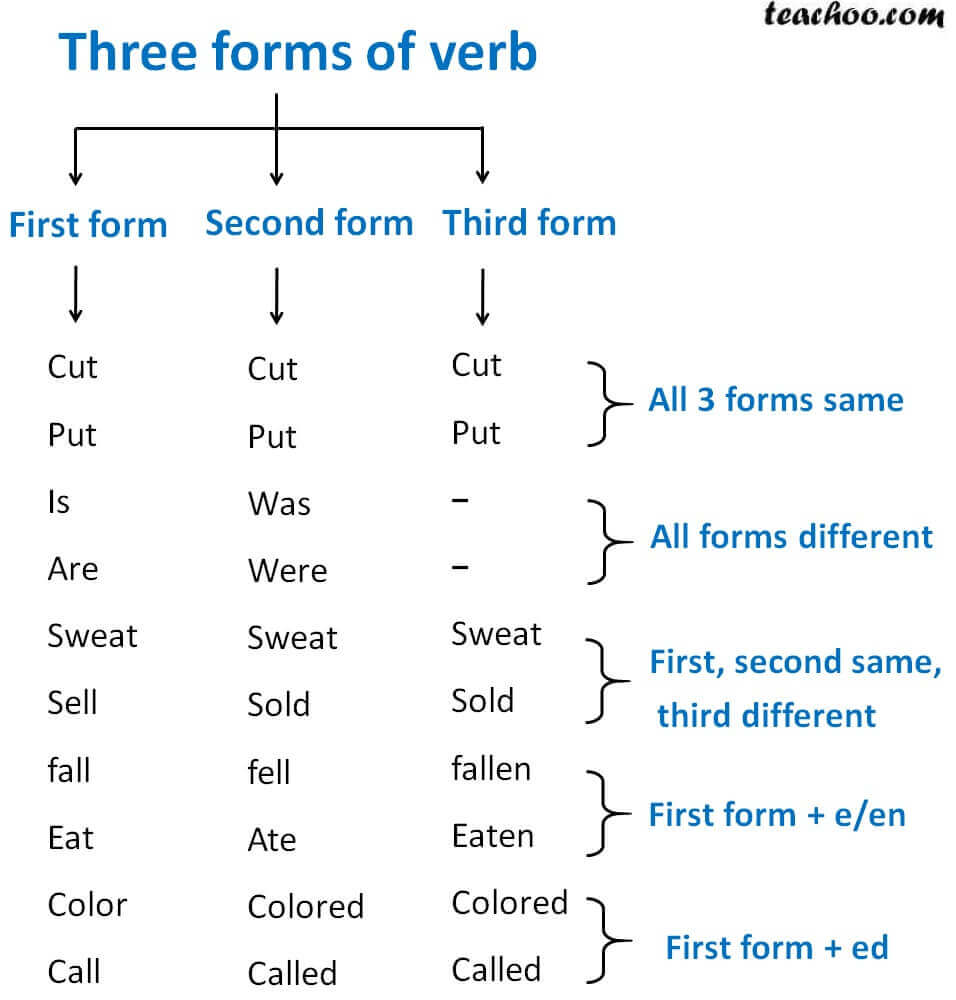
Three forms of Verbs with Types and Examples Teachoo
Table of irregular verbs - English Grammar Today - a reference to written and spoken English grammar and usage - Cambridge Dictionary
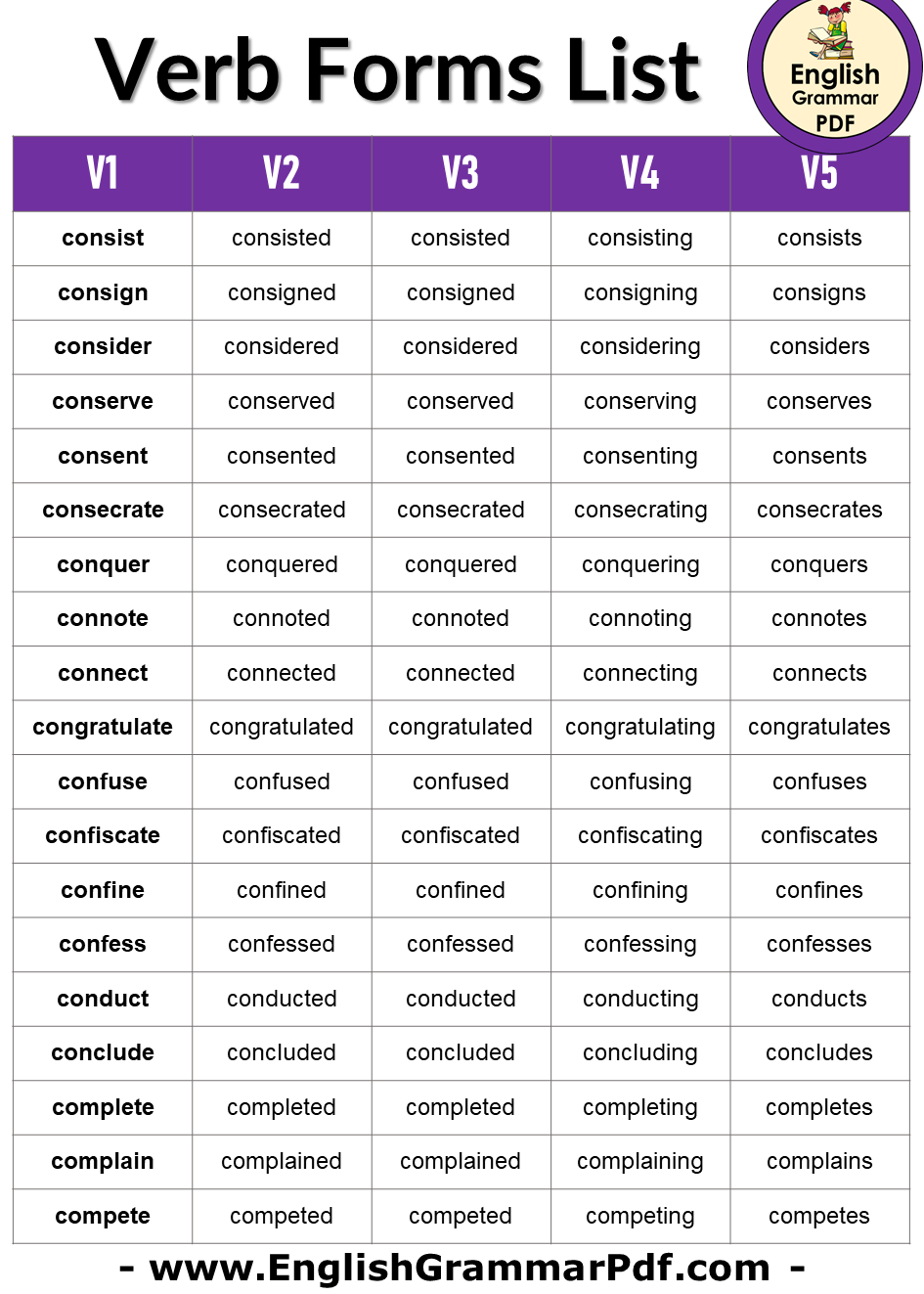
1000 Verb List, V1 V2 V3 V4 V5 Form Verb List English Grammar Pdf
Be Past Simple, Simple Past Tense of Be, Past Participle, V1 V2 V3 Form Of Be When learning English you need to know the meaning of certain words first, and then sort the words appropriately according to grammatical rules. Verbs in a regular structure can be transformed with a simple rule, whereas in irregular verbs, this situation is slightly different. It may be a good start to make some.
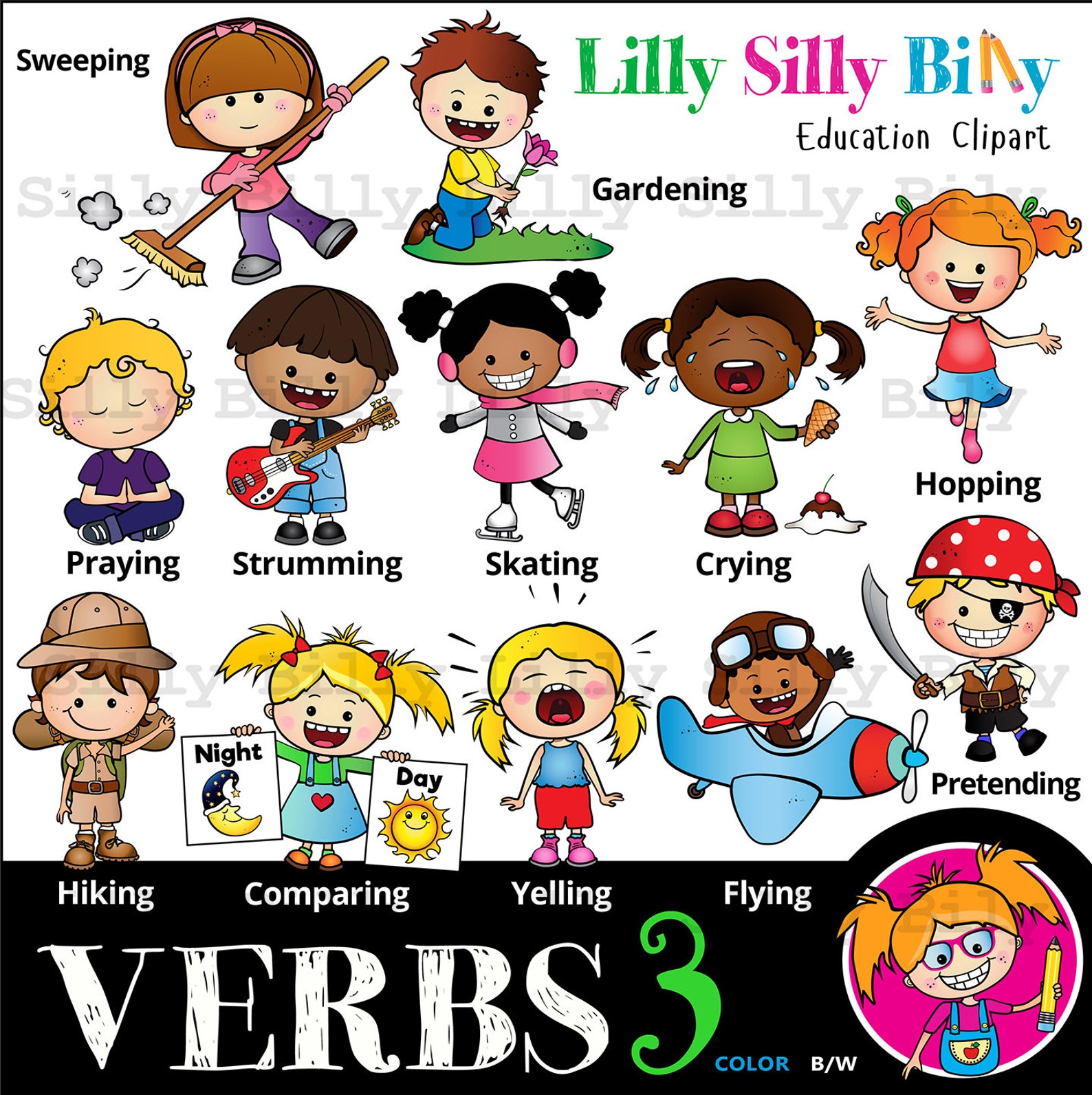
VERBS 123 Bundle Clipart for Small Commercial and Education Use. Images to Teach Vocabulary
Verb conjugation refers to how a verb changes to show a different person, tense, number or mood. To be verb conjugation. In English, we have six different persons: first person singular (I), second person singular (you), third person singular (he/she/it/one), first person plural (we), second person plural (you), and third person plural (they).